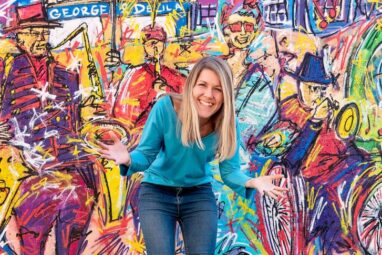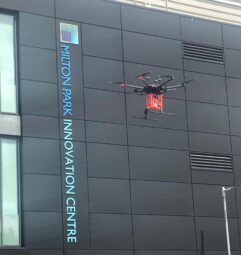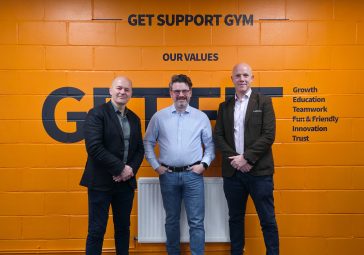
The leadership needed next year, by Rita Trehan, CEO of DareWorldwide
With summer ending, many of us will be starting to look back on the last year and its lessons. All being well, the new year will be the first ‘normal’ year of business since 2019, giving leaders space to build the learnings of the pandemic into their work.
The fallout of the coronavirus can still be felt. Leadership styles for 2022 will be made – as they were in 2020 and 2021 – by reactiveness to change. Skill demands, demographic changes and Brexit are among the new challenges businesses will be wrestling with, but the message stays the same: listen to your staff and stay open to improvement.
Perhaps most clearly, the pandemic has forced us to rethink staff development. The skills required in February 2020 were very different to those of March, and most of us since will have had our policies for upskilling tested to their limits.
Into the 2020s, new tech and national recovery plans will create and change jobs, pushing businesses to evolve again. Leaders will need to prepare with a flexible strategy that goes beyond merely readying staff for the challenges of the immediate future. This may include new software, new working practices or automation.
Open lines of communication will be key. The pandemic has shown the value of collaboration, flattening hierarchies and amplifying softer voices; when challenged to adopt cloud technology and online meetings, it was our youngest and most junior staff who stepped up to lead the way. Leaders should consult with employees to understand their strengths and limitations, developing skills that the office community can believe in and benefit from.
After the coronavirus, nobody wants to speculate the path of 2022. But it will be vital that leaders are transparent in their planning, helping staff to see their shifting role towards an objective. Through the pandemic, the stability of full time employment was enough to retain staff. But now, businesses are suffering from high employee turnover. As circumstances evolve, workers are losing a sense of purpose in what they do. The focus of any strategy should be to resolve this, offering skills and direction built around a changing climate.
In our own research, as many as 35% of businesses admit that they are currently not doing this well. 85% recognise the gap between actual performance and performance indicators as they stand. To get around this, strategists will need to reinforce a sense of meaning long term. The office space needs to be dynamic enough to adapt to change and stable enough to create an identity and retain staff.
In 2022, this may mean serious consultations with staff on longer-term plans, rewarding employees with training that aligns with corporate strategy and career progression. It may include hybrid working, different perks or flexible hours to support loyal staff to do their best work. The trick will be to forge a collective, purposeful identity while engaging with the changing needs and incentives of the individual.
2022 has the potential to be defined by a new gig economy, already preferred by many for the freedom to pick up new skills. Businesses risk losing staff here to short term positions elsewhere. Alternatively, turbulence gives us the opportunity to step back and listen, inviting all staff to contribute towards a stronger, less brittle working community. Handled badly, businesses will lose quality employees to a rapidly changing environment. Handled well, businesses can forge strong corporate identities and flexible working patterns.
Headlines are moving on from Covid. At times it feels we are moving out of chaos and back towards order. But 2022 is unlikely to be so straightforward. The answer is not to fret over the exact shape the future will take. The answer will be to build a vessel that can weather any storm, working with the currents and not against them.
More in Business Strategy

What prospects are thinking but often fail to ask
I was at a B4 Ecosystem Event recently run by Caroline O’Connor of Fourth Born and she posed a brilliant question to the room. Article by David Finch of Purple Frog

‘Meanwhile in Oxfordshire..’ Case Study: Ducky Zebra, the sustainable kidswear brand...
‘Often girls’ clothes are pink, cute and impractical. They promote kindness, but not always confidence. And boys’ clothes are often blue, aggressive and adventure seeking. They promote confidence, but not always kindness. I wanted to bring these two characteristics together and allow all children, no matter what their gender, to celebrate both kindness and confidence.’ – Sally Dear, Founder of Ducky Zebra

Innovative drone delivery trials take place at Milton Park
A pilot demonstration for a set of innovative drone and electric van freight trials was successfully completed at Milton Park.
From this author

Careys Construction Campus at Oxford North’s inaugural student cohort celebrates their...
The first students to take part in the pilot Careys Construction Campus at Oxford North, the free three-week training course for people aged 17 years and over, have graduated with flying colours.

B4 Reviews – with Ruth Hawkins
Richard has recently asked me to find and lead a small team of reviewers from the B4 community, so over the next few weeks I will be looking to build that team and also looking for venues, events and activities from within the B4 network and beyond to write some reviews!

Get Support Announced as B4’s Official IT Partner
We are delighted to announce that Oxfordshire’s leading IT Services provider, Get Support, have become B4’s Official IT Partner.

